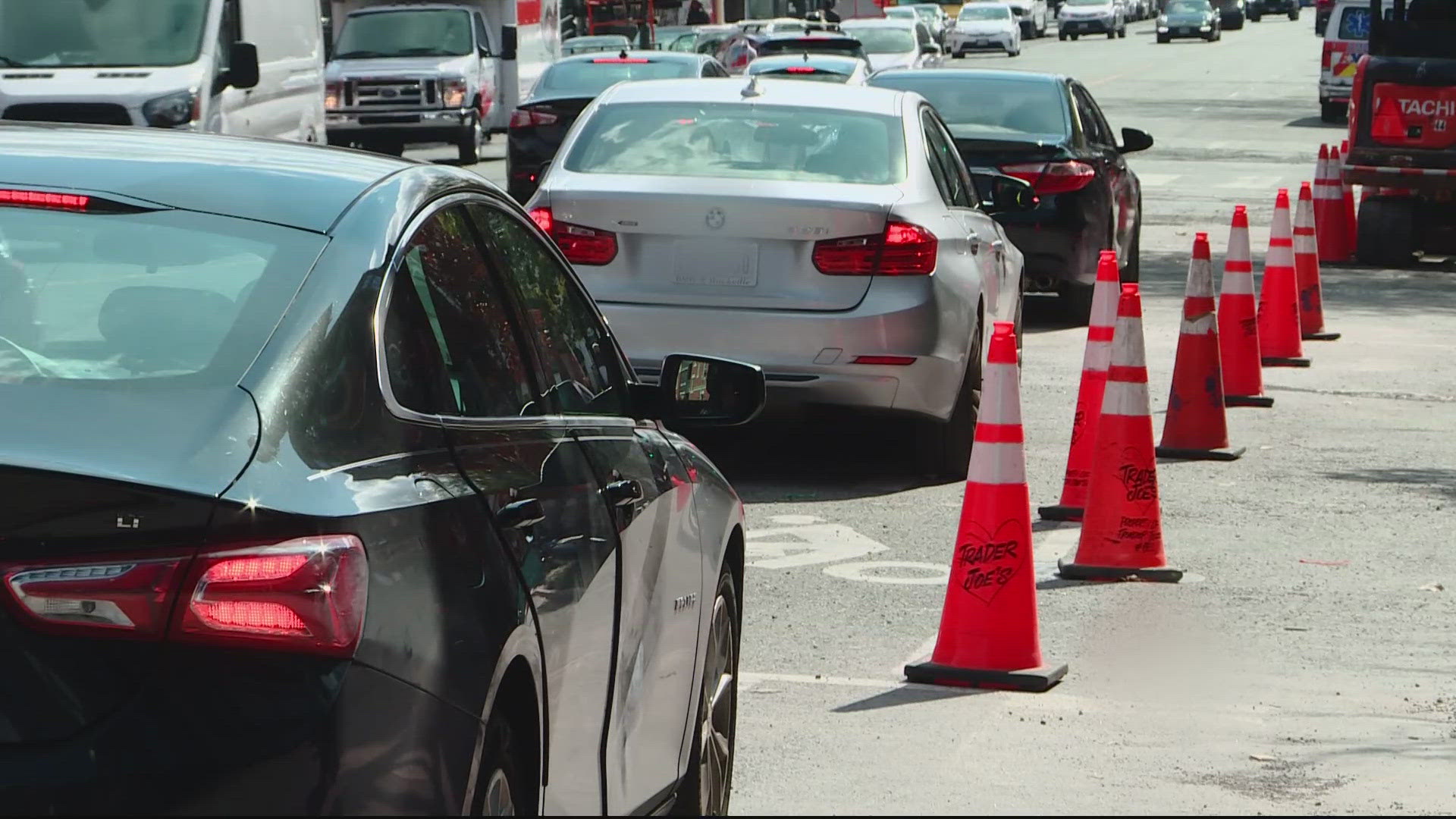WASHINGTON — With traffic fatalities in D.C. already topping last year's total, the Council is looking at giving unsafe drivers harsher penalties.
The Transportation and Environment Committee and Public Works Committee are holding a joint hearing starting at 10 a.m. to discuss four new pieces of legislation related to traffic safety.
They include:
- License Suspension Reform Amendment Act of 2023
- Strengthening Traffic Enforcement, Education, and Responsibility (STEER) Amendment Act of 2023
- Automated Traffic Enforcement Effectiveness Amendment Act of 2023
- Fraudulent Vehicle Tag Enforcement Amendment Act of 2023
“We have folks that have dozens and dozens of speeding violations. And frankly, I don't care if you had dozens and dozens of speeding violations and paid them or not, you're a dangerous driver," Ward 6 Councilmember Charles Allen said. He heads the Transportation Committee. "So we want legislation, we want laws that are gonna go after that dangerous driving. That's the behavior that has to change. And I think we're gonna create new laws and accountability, that are gonna help us do that.”
Part of the inspiration behind these bills were crashes like the fatal one on Rock Creek Parkway back in March.
A woman who has had multiple DUIs slammed into a rideshare driver’s car – killing him and his two passengers.
"The deadly crash on Rock Creek Park showed us the city was not handling convicted DUIs and impaired driving correctly. So the court would have those convictions. The DMV was not suspending the licenses. And they did pointed to some data, you know, miscommunications, but really, I think it was a failure of the system."
One of these bills would require immediate license suspensions for certain offenses like impaired driving and negligent homicide.
The amendment acts would also add points to licenses after a person racks up a certain number of moving violations, at which point they could also face license suspension, even if they pay their fines.
The points are designed to help with reciprocity issues DC faces, with so many drivers from Maryland and Virginia passing through, racking up tickets, and facing no consequences for receiving them and not paying them.
"It's really important, because in out of state vehicles, in particular, we haven't succeeded in collecting those fines," Ward 1 Councilmember Brianne Nadeau said. She chairs the Public Works Committee. "As well as, in the District of Columbia, because we don't have that reciprocity, points are really important to leverage, because they do have an impact on the driver, they can make your insurance rates go up. And that is the thing that will really be painful for them financially."
Another provision laid out in the amendments empowers the DC Attorney General to bring civil suits against the most serious offenders.
"It's actually only a couple of dozen drivers that are the worst offenders, and we're talking about $50,000 plus of unpaid citations, right?" Allen said. "So when they refuse to pay, and yet we don't have reciprocity, we don't have a lot of tools to go after him. We will now. The Attorney General will take that person to suit, and I betcha if we're able to target a couple of dozen of the worst offenders, and they can show that they can go after them. I think it's going to change behavior for everybody else, too."
When it comes to the Department of Public Works' role in traffic safety, Nadeau said that parking enforcement is their best tool.
“Department of Public Works has the boots, and the towing cranes that can take these cars off the street and immobilize them," she said. "And so my focus on the committee has been ensuring we have enough parking enforcement officers, adding a number of staff with the booting and the towing divisions, the director has been adding more shifts.”
Just last week, she said DPW impounded a vehicle that had racked up $69,000 in parking tickets.
There's also legislation to more aggressively go after drivers with fake tags, since they can evade enforcement altogether.
One of the main tools DC uses to try to reduce speeding is automated traffic enforcement cameras. The city has been adding more to neighborhoods throughout the year.
Another bill would push for data transparency on where they’re installed and why and making sure the cameras take pictures of both the front and back of the car to see the driver behind the wheel.
"The cynicism you'll hear from folks about automated traffic enforcement is it's just a money grab, and I think the city's got to be very smart to create a clear nexus between any revenue that is generated from automated traffic enforcement needs to go right back into safer roads and safer streets," Allen said.
Despite protestation from councilmembers like Allen, the budget was approved with funding from ATE cameras being funneled into the general fund instead of directly into traffic safety.
At Wednesday's hearing, the council will hear from government witnesses in part, about the logistical and financial feasibility of some of these plans.
The council held a hearing for the public back in October.
However, members of the public can still submit written feedback through December 15.
To read more about the legislation, click here.

